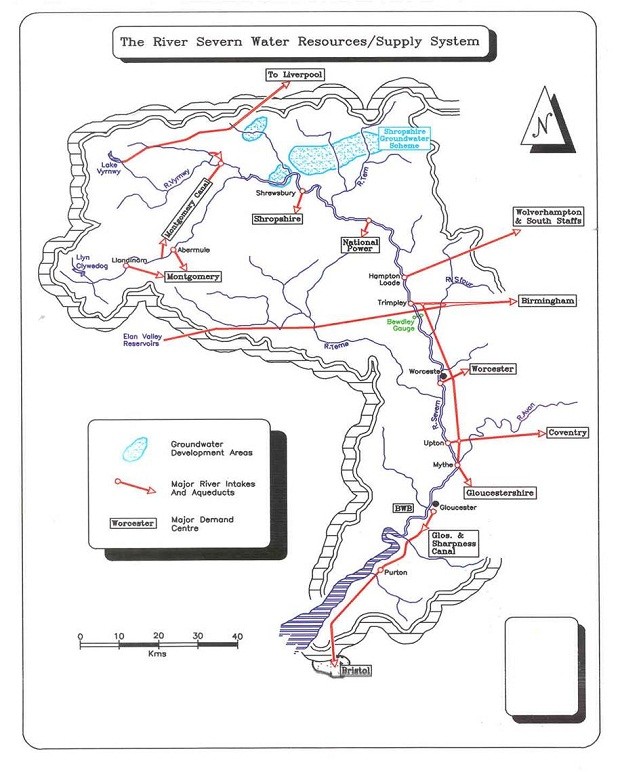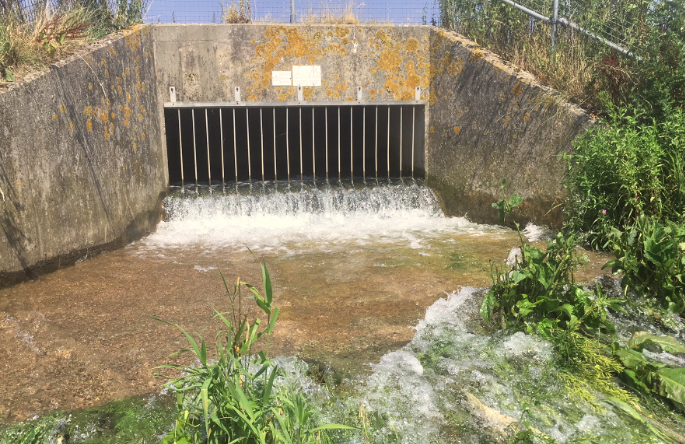From its source in mid Wales to its mouth at the Severn Estuary, the River Severn might be the UK’s longest river at 354km, however, occasionally it still needs a helping hand.
The River Severn forms part of a large water supply system essential to West Midlands communities who rely upon the river for their drinking water. As well as providing water for local businesses, the river also provides a prime habitat for wildlife and leisure activities.

It is the responsibility of the Environment Agency and Natural Resources Wales to ensure that the river is managed to support all of these uses. We constantly monitor the river to ensure that it has sufficient water and, if necessary, release water to top flows up. You are probably wondering how and why we support the river. During drier summer months, activities such as water abstraction or lack of rainfall can have an impact on river flow. If river flows fall too low, it could cause stress or damage to river ecology and habitats. We monitor and control what is taken from the river to ensure that flows can still support the natural environment.
To help us manage the river we call upon surface water stored in Clywedog and Vyrnwy reservoirs in mid Wales, and the underground water resources of the Shropshire Groundwater Scheme in North Shropshire. The amount of water we release is determined by: current and predicted river flows; abstraction demands; and weather forecasts. Our aim is ensure that the river flow measured midway down the Severn at Bewdley, Worcestershire, does not fall below a minimum flow target of 850 million litres a day over a five day average.
Balancing the demands of abstractors against the ecological needs of the river.

The River Severn requires some degree of support most years, and this year is no exception. Reservoir storage in Clywedog and Vyrnwy and groundwater levels remain healthy following a very wet winter. February saw widespread flooding in the Midlands, with that month being the wettest February on record and the winter overall was the fifth wettest ever recorded. Meanwhile, April saw only 40 per cent of monthly average rainfall and that dry spell has continued in to May. So despite the heavy winter rainfalls, the recent dry weather has seen the river level beginning to fall triggering the first releases of water to boost river flows. Certainly, without that extremely wet winter, water would have had to be released into the Severn earlier in the dry spell in order to maintain the river levels.
The value of managing and protecting the river, both now and in the future, is becoming more evident, particularly if we are to deal with the challenges posed by climate change. We need to remain vigilant and adapt our management of the river in response to the extremes of weather posed by both flooding and dry weather. During dry weather conditions please use water wisely to help preserve and maintain the habitat of the River Severn.
Kevin Voyce is a technical specialist in hydrogeology at the Environment Agency

3 comments
Comment by TERRY posted on
Where can I find a quick summary of what the environment agency is doing to manage the river severn its for my sons homework all I can find is grown up stuff .
Regards
Terry
Comment by kathrynbooth posted on
Afternoon Terry, if you can email your query in more detail we may be able to help.
Email further details to our enquiry team at enquiries@environment-agency.gov.uk
Best regards
Comment by Rwth Tomos posted on
There should be no plans made to create more dams in Wales for the benifit of England. If you want to control water flow on the Severn use the dams already built sensibly, releasing water when rain is not expected so that some can be held back in heavy rain conditions. The Clywedog and Efyrnwy dams are more than adequate for this but as water is sold to English water boards so cheaply the dams hold on to every last drop to sell on to English water boards. Wales already does more than enough in storing water for England and without anything like adequate compensation. The trouble you had and the protests in the 1950/60's when drowning Capel Celyn will look like nothing if you try to drown another Welsh valley. You will not be able to force an Act of Parliament through Westminster this time as many of the powers needed have been devolved to the Senedd, who will never agree, like the Welsh MP's who voted against the Tryweryn scheme in the 1950's and there will be protests on a massive scale. If you drive along any major road in Wales you will see the words "Cofiwch Dryweryn" in red and white on many walls. We have not forgotten and will not allow such an outrage again.